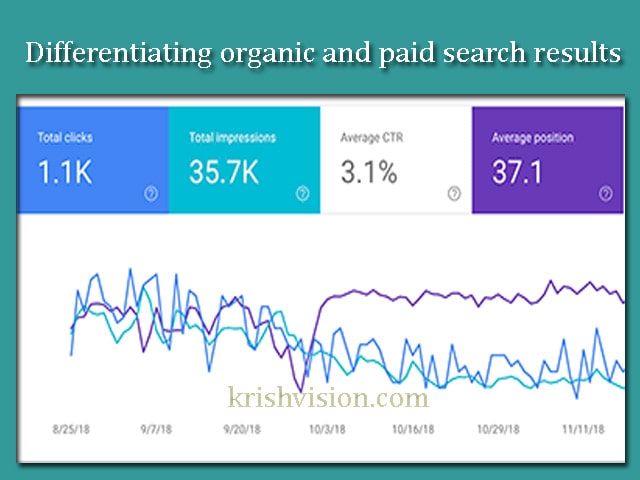
Are you a small business owner looking to enhance your online presence and attract more customers? In this article “SEO Strategies for Small Business Success”, we unveil the secrets behind the SEO strategies that can lead your small business to success. By implementing these techniques, you can improve your website’s visibility in search engine results and drive organic traffic to your online platform.
In today’s digital landscape, having a strong online presence is vital for small businesses to thrive. Search Engine Optimization (SEO) plays a crucial role in ensuring that your website ranks higher in search engine results, making it more visible to potential customers. In this comprehensive guide, we will explore the essential SEO strategies that small businesses can employ to achieve online success.
Understanding SEO for Small Businesses
SEO Strategies for Small Business Success
What is SEO?
SEO, or Search Engine Optimization, refers to the process of optimizing your website to improve its visibility and ranking in search engine results. It involves various techniques and strategies that aim to attract organic (non-paid) traffic to your website.
Definition and significance
SEO is essential for small businesses as it helps increase their online visibility, attract more potential customers, and establish brand authority in the digital realm. By implementing effective SEO strategies, small businesses can compete with larger competitors on search engine results pages (SERPs).
Differentiating organic and paid search results

It’s important to understand the difference between organic and paid search results. Organic results are the listings that appear naturally on SERPs, influenced by SEO efforts. On the other hand, paid results are advertisements displayed at the top or bottom of the page, which businesses pay for.
Key SEO Elements for Small Businesses
To achieve SEO success, small businesses need to focus on several key elements. Let’s explore these elements in detail.
On-page optimization
On-page optimization involves optimizing various aspects of your web pages to improve their visibility to search engines. This includes optimizing meta tags, headers, URL structure, and content to align with relevant keywords.
Keyword research and targeting
Keyword research is the foundation of successful SEO. Identify relevant keywords and phrases that your target audience is likely to search for. Incorporate these keywords strategically throughout your website to increase its visibility in search results.
Content creation and optimization
Creating high-quality, informative, and engaging content is crucial for SEO. Develop content that caters to the needs and interests of your target audience. Optimize your content by including relevant keywords, headers, and meta descriptions.
Technical SEO considerations
Technical SEO focuses on the backend elements of your website that impact its visibility and performance. This includes optimizing website speed, mobile-friendliness, site structure, URL optimization, and XML sitemaps.
Essential SEO Strategies for Small Businesses
Now that we have a solid understanding of the key SEO elements, let’s delve into the essential strategies that can help small businesses succeed in the competitive online landscape.
Local SEO
Local SEO is crucial for small businesses that target customers in specific geographic areas. Implementing effective local SEO strategies can help your business attract customers within your locality. Consider the following techniques:
Optimizing Google My Business listing
Ensure your Google My Business (GMB) listing is complete and accurate. Provide up-to-date information about your business, including address, phone number, business hours, and website URL. Encourage customers to leave positive reviews on your GMB listing.
NAP consistency (Name, Address, Phone)
Maintain consistency in your business’s name, address, and phone number across all online platforms and directories. Inconsistencies can confuse search engines and negatively impact your local search rankings.
Generating positive online reviews
Encourage your satisfied customers to leave positive reviews on review sites and your GMB listing. Positive reviews not only improve your online reputation but also contribute to higher local search rankings.
Local keyword targeting
Incorporate location-specific keywords into your website’s content, meta tags, and headers. This helps search engines understand that your business is relevant to local searches.
High-Quality Content Creation
Creating compelling and informative content is a cornerstone of successful SEO strategies. Follow these guidelines to create high-quality content:
Understanding audience intent and search intent
Before creating content, research and understand your target audience’s intent and the search intent behind their queries. This will help you develop content that meets their needs and provides valuable information.
Crafting compelling and informative content
Create content that is engaging, informative, and relevant to your audience. Offer solutions to their problems, share industry insights, and provide practical tips. This will establish your business as an authority in your niche and attract more organic traffic.
Incorporating relevant keywords naturally
Integrate your target keywords into your content naturally. Avoid keyword stuffing, as it can harm your SEO efforts. Instead, focus on creating valuable content that naturally incorporates relevant keywords and provides a seamless reading experience.
Encouraging social sharing and engagement
Promote social sharing of your content by incorporating social sharing buttons on your website. Encourage readers to share your content on social media platforms, which can drive more traffic and increase your online visibility.
On-Page Optimization Techniques
Optimizing your web pages is crucial for improving their visibility in search engine results. Consider the following on-page optimization techniques:
Meta tags optimization (title tags, meta descriptions)
Craft compelling and keyword-rich title tags and meta descriptions for each page of your website. These tags provide a brief summary of your page’s content and can significantly impact click-through rates from search results.
URL structure and keyword inclusion.
Create clean and user-friendly URLs that include relevant keywords. This helps search engines understand the content of your page and can improve your rankings.
Header tags (H1, H2, H3) and keyword usage
Use header tags (H1, H2, H3) to structure your content and highlight important sections. Incorporate relevant keywords naturally within these headers to improve keyword visibility.
Optimizing images with alt tags and file names
Optimize images on your website by using descriptive alt tags and file names. This helps search engines understand the content of your images and can improve your visibility in image search results.
Read More! How to Become a Computer Expert
Building Quality Backlinks
Building high-quality backlinks is an important off-page SEO strategy that can significantly impact your website’s authority and rankings. Consider the following techniques for acquiring authoritative backlinks:
Importance of backlinks for SEO
Backlinks serve as “votes of confidence” from other websites. Search engines consider backlinks as indicators of your website’s credibility and authority. Aim to acquire backlinks from reputable and relevant websites.
Strategies for acquiring authoritative backlinks
Reach out to relevant websites, industry influencers, and bloggers to request backlinks or collaborations. Provide valuable content or resources that can benefit their audience in exchange for a backlink to your website.
Guest blogging and outreach opportunities
Identify opportunities to contribute guest posts on authoritative websites within your industry. This allows you to showcase your expertise and gain exposure to a wider audience, while also earning valuable backlinks.
Monitoring and disavowing toxic backlinks
Regularly monitor your backlink profile and identify any low-quality or toxic backlinks. Use Google Search Console or other SEO tools to disavow these backlinks and prevent any negative impact on your website’s rankings.
Read More! How to prepare for an interview as a fresher
Mobile-Friendly Website Design

With the increasing use of mobile devices, optimizing your website for mobile users is crucial for SEO success. Consider the following mobile-friendly design practices:
The significance of mobile optimization
Mobile optimization ensures that your website is accessible and user-friendly on smartphones and tablets. It improves the overall user experience and can positively impact your search engine rankings.
Responsive design and mobile user experience
Implement a responsive design that automatically adjusts your website’s layout and content based on the user’s device. Optimize your website for fast loading speeds and easy navigation on mobile devices. Make sure that buttons and links are easily clickable and that text is readable without zooming.
Page load speed and performance optimization
Optimize your website’s performance to ensure fast page load speeds on mobile devices. Compress images, minify code, and leverage browser caching to improve loading times. Users are more likely to abandon a website that takes too long to load.
Mobile SEO best practices
Implement mobile SEO best practices such as using mobile-friendly pop-ups, optimizing your site’s mobile navigation, and avoiding Flash content. Focus on providing a seamless and enjoyable mobile experience for your users.
Read More! Effective Depression Management Techniques
Measuring and Analyzing SEO Performance
To gauge the effectiveness of your SEO strategies, it’s crucial to measure and analyze your website’s performance. Consider the following steps:
Setting up Google Analytics and Google Search Console
Install Google Analytics and Google Search Console on your website. These tools provide valuable insights into your website’s traffic, keyword rankings, user behavior, and more.
Monitoring organic search traffic and keyword rankings
Regularly monitor your website’s organic search traffic to assess the impact of your SEO efforts. Track keyword rankings to see how your website is performing in search engine results for targeted keywords.
Analyzing user behavior and engagement metrics
Utilize analytics data to understand user behavior on your website. Analyze metrics such as bounce rate, time on page, and conversion rates. This information helps you identify areas for improvement and optimize your website for better user engagement.
Refining SEO strategies based on data insights
Based on the data and insights obtained from analytics tools, refine your SEO strategies. Identify keywords that are driving traffic and conversions, optimize underperforming pages, and adjust your content and marketing efforts accordingly.
Implementing effective SEO strategies is crucial for small businesses to achieve online success. By understanding the key elements of SEO, such as on-page optimization, content creation, backlink building, and mobile optimization, you can improve your website’s visibility in search engine results and attract organic traffic. Regularly measure and analyze your SEO performance to refine your strategies and stay ahead of the competition.
Read our frequently asked questions (FAQs) to find answers to common queries and gain valuable insights.
Can I handle SEO on my own, or should I hire an expert?
Handling SEO on your own is possible, but it requires time, effort, and knowledge. If you have the resources, hiring an SEO expert or agency can provide valuable expertise and save you time.
How long does it take to see results from SEO efforts?
SEO is a long-term strategy, and results can vary depending on various factors. It can take several months to see significant improvements in your website’s rankings and organic traffic. Patience and consistency are key.
What are some common SEO mistakes to avoid for small businesses?
Common SEO mistakes to avoid include keyword stuffing, low-quality content, buying links, and neglecting mobile optimization. It’s important to stay updated with SEO best practices and avoid any tactics that violate search engine guidelines.
Is social media important for SEO?
While social media signals may not directly impact your website’s rankings, social media can indirectly contribute to SEO success. It can help increase brand visibility, drive traffic to your website, and attract potential backlinks.
How often should I update my website’s content for SEO?
Regularly updating your website’s content is beneficial for SEO. Aim to create fresh and valuable content on a consistent basis. This could be through blog posts, articles, case studies, or product updates.
Are there any quick SEO hacks for small businesses?
SEO is a long-term process, and there are no quick hacks that guarantee success. It’s important to focus on providing value to your audience, following ethical SEO practices, and staying consistent with your efforts. Building a strong foundation with quality content, optimizing your website, and earning authoritative backlinks are the key components of long-term SEO success.
Thank you for taking the time to read our article on “SEO strategies for small business success”. We hope you found the information valuable and insightful.
